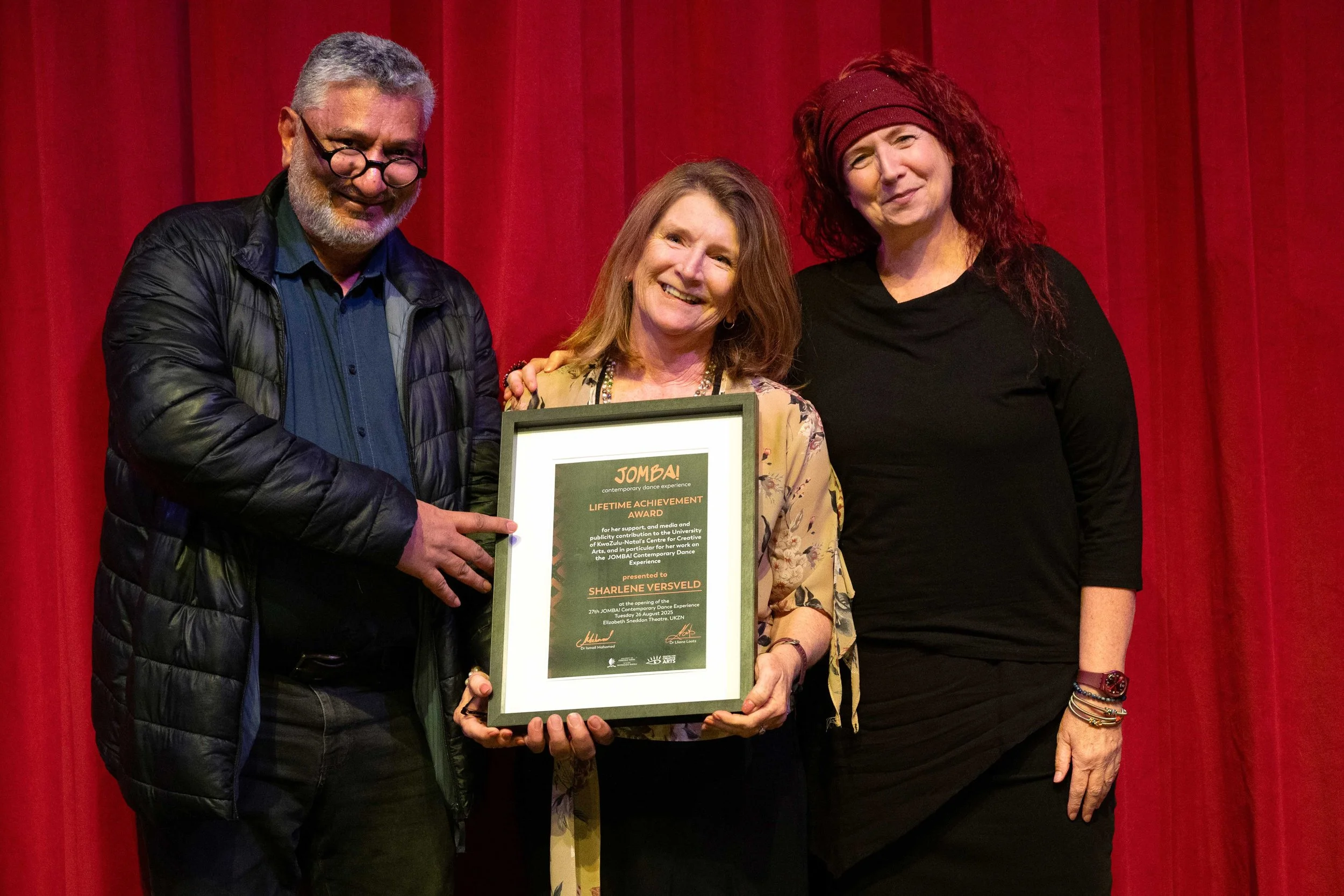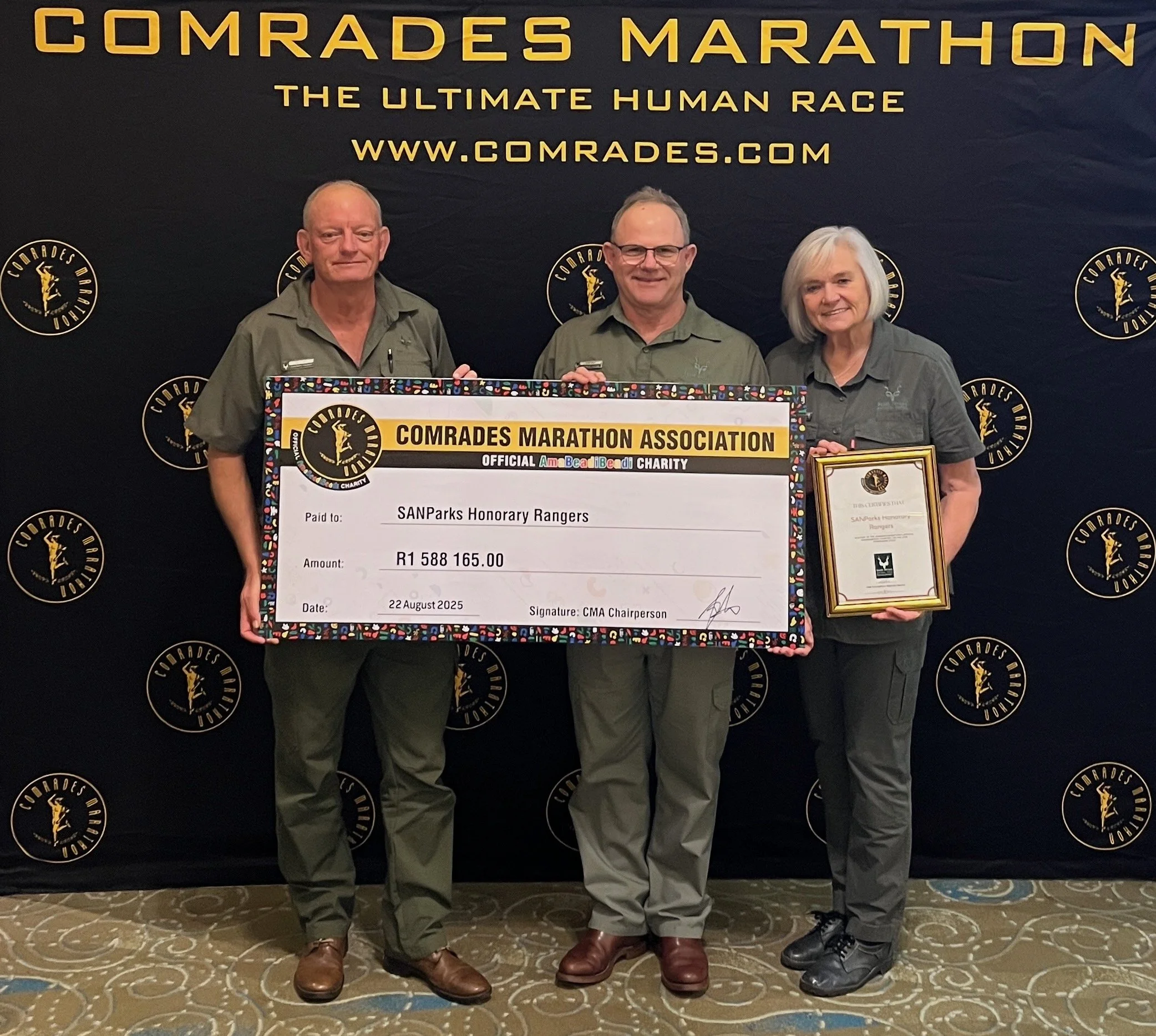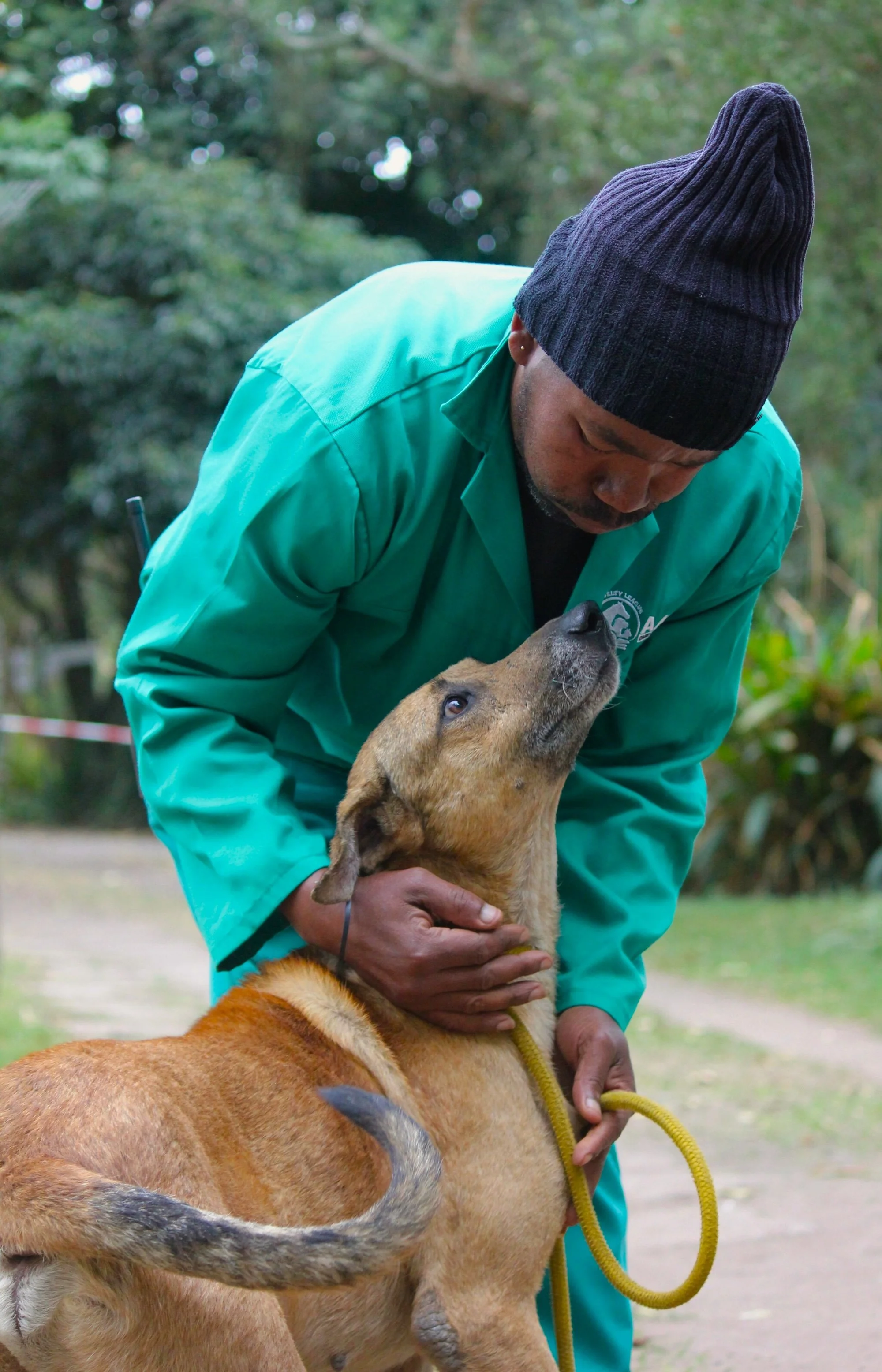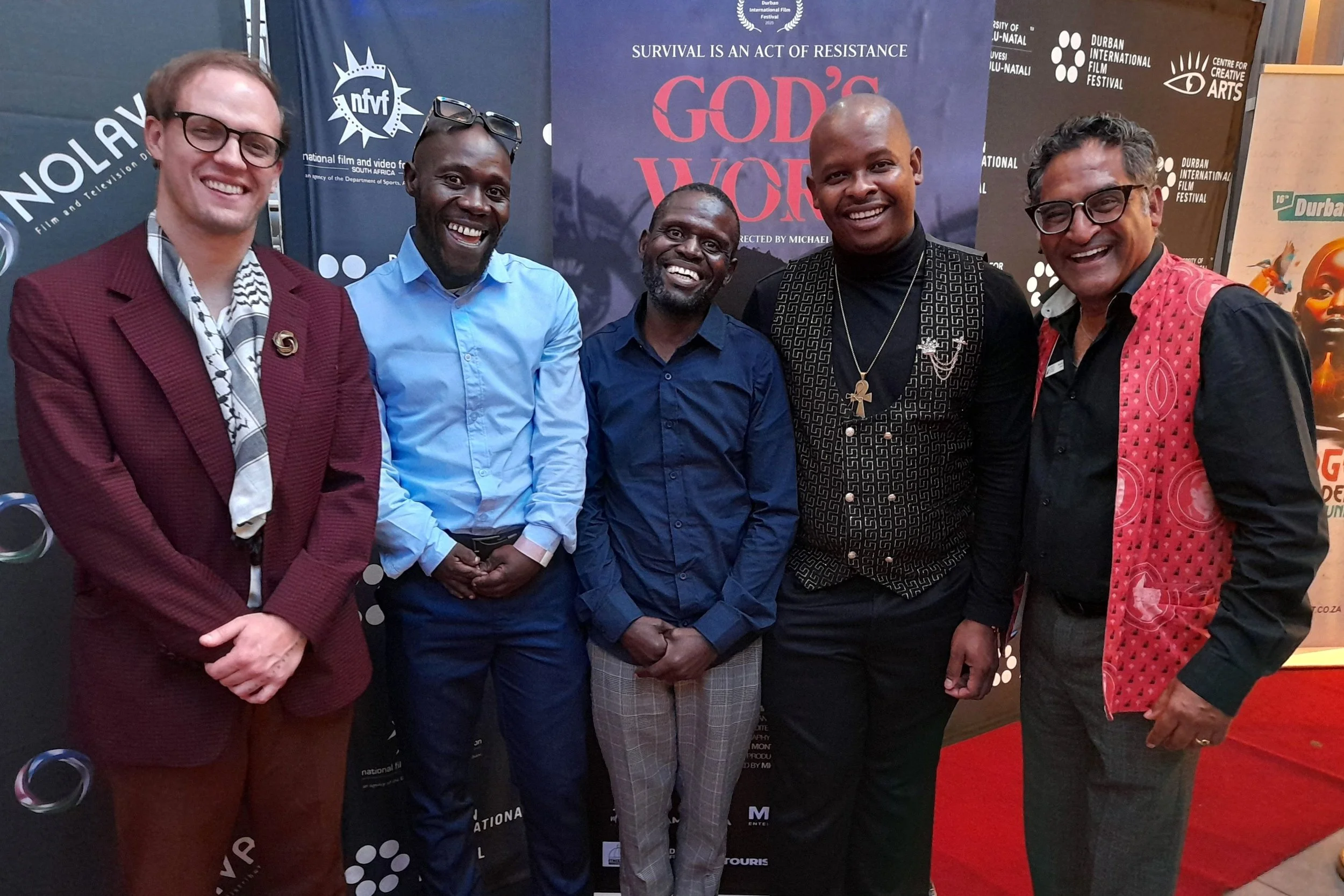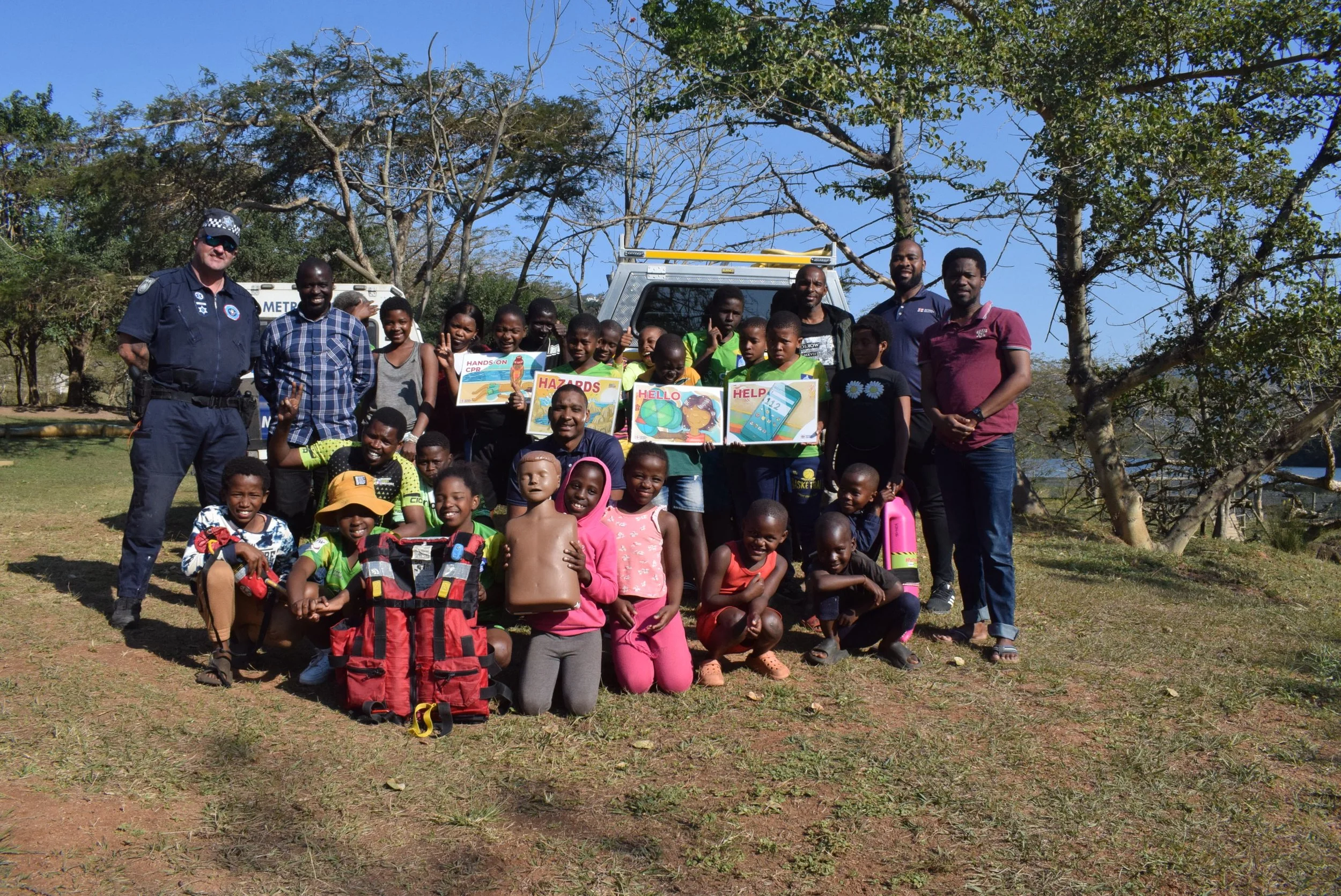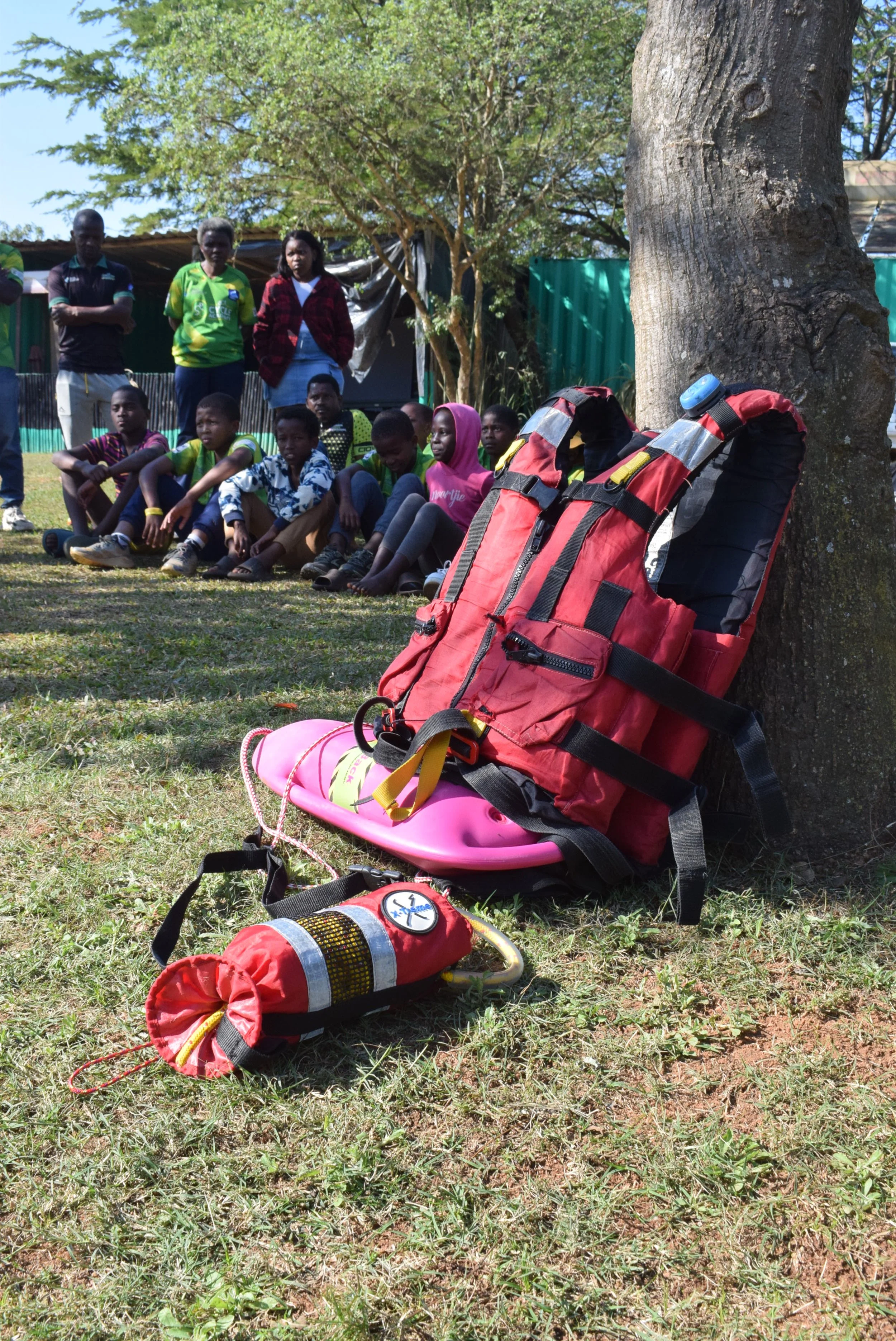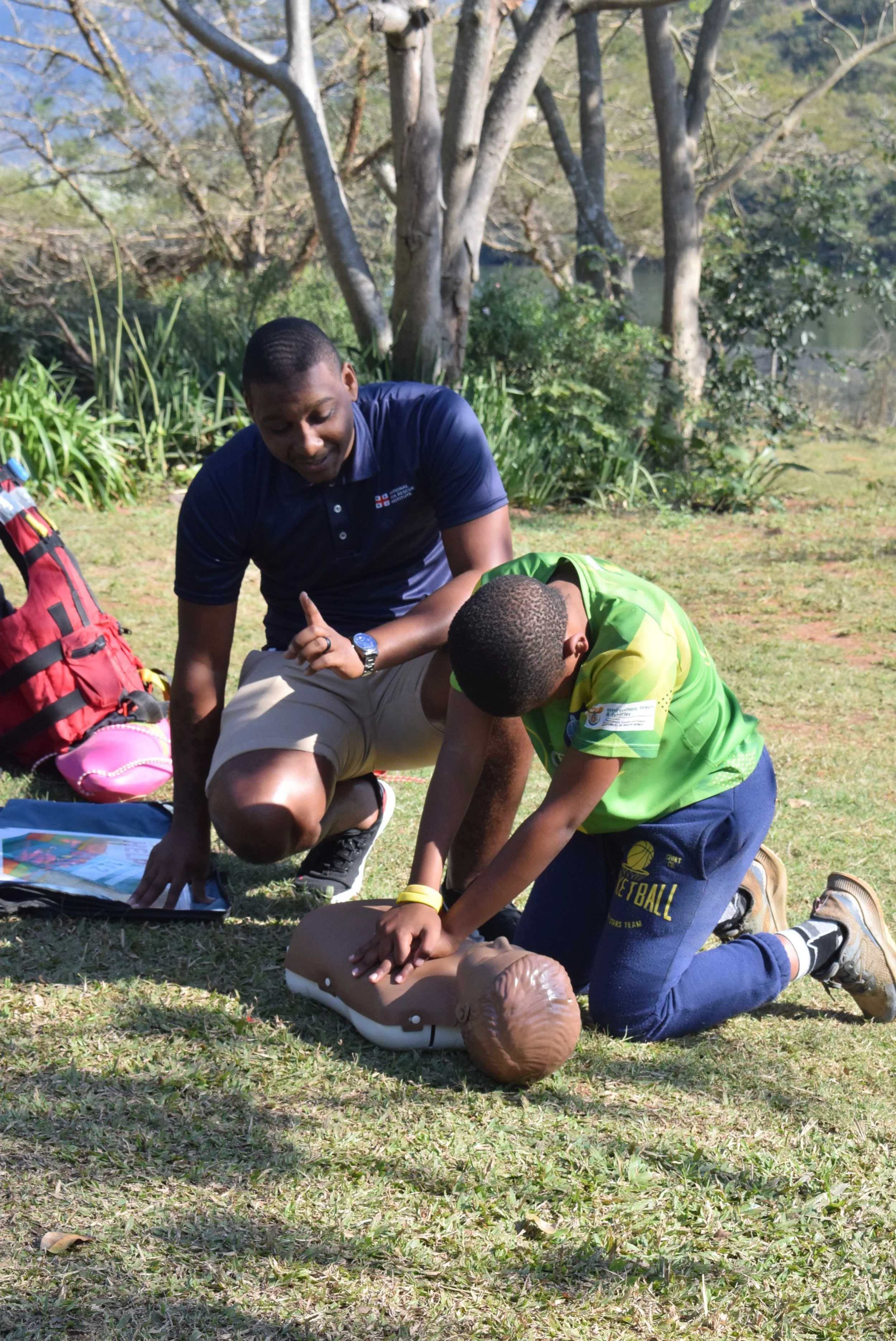Durban communications specialist Sharlene Versfeld was awarded a Lifetime Achievement Award presented by the University of KwaZulu-Natal’s Centre for Creative Arts, for her contribution towards creating global recognition for the 27-year-old annual JOMBA! Contemporary Dance Experience.
The JOMBA! Contemporary Dance Experience is South Africa’s longest running contemporary dance festival and amongst one of the leading events on the African continent.
Presenting the Award to Sharlene Versfeld, the Centre’s Director, Ismail Mahomed, acknowledged the prominent role played by Versfeld since the founding of the Centre for Creative Arts in 1997.
“She was part of the team that launched the University of KwaZulu-Natal’s Centre for Creative Arts with Breyten Breytenbach, publisher Adriaan Donker, and UKZN lecturer Michael Green, with the inaugural Poetry Africa International Poetry Festival. Since then she has worked closely with the Centre in marketing its four major festivals over the years: the Durban International Film Festival, JOMBA! Contemporary Dance Experience, Poetry Africa and Time of the Writer International Writers Festival. Sharlene has headed up the 27 years of the CCA JOMBA! festival marketing and publicity”, he said.
In 2023, the JOMBA! Contemporary Dance Experience supported by the French Institute of South Africa launched a commemorative publication to mark the 25 years of festival. Mahomed said that Sharlene’s contribution was vital in building a credible archive.
“Over 27 years, not only did Sharlene bring JOMBA! to the radar of artists, audiences and funders but she also archived press releases, news articles, interviews, other festival collateral which is essential for how we honour and celebrate our cultural memory. It is this which gives merit to why JOMBA! is more than just a cultural event, but it is also an essential player in the knowledge economy of the University of KwaZulu-Natal”, he said.
Apart from the challenges of an uncertain arts funding environment and an incoherent arts funding policy in South Africa one of the greater losses over the last ten to fifteen years, Mahomed said, is the shrinking of the arts journalism pages in the media and the retrenchment of arts journalists due to both South Africa’s economy and the changes in media technology.
Mahomed gave credit to Sharlene Versfeld who through her extensive professional network, has mobilised specialised journalists to continue to write about the arts. “Sharlene works as a connector between artists and audiences by engaging journalists who can both promote and critique artistic work. She enables journalists and audiences to make sense of the work so that it becomes part of our cultural memory. More than anything else, Sharlene enables the media to write about the contribution that the arts makes to our country’s GDP, to the social capital of our cities and to the intellectual capital of our universities”, Mahomed said as he affirmed why Sharlene Versfeld was deserving of a Special Lifetime Achievement Award.
Sharlene Versfeld, has been involved professionally in the South African arts sector since 1987. She is most noted for her work as an arts marketer and was a winner of the inaugural Arts & Culture Trust Award of the President for publicity in 1998.
She began her career at the Natal Performing Arts Council (now The Playhouse) as an arts administrator, education officer and Marketing Manager. In 1993 she began consulting to arts organisations and has worked on a variety of arts projects across many genres. She has her own publicity business, Versfeld and Associates.
Versfeld focuses on developing marketing strategies for events and organisations, across all genres of the arts including dance, visual art, film, music, theatre and literature, and more recently, environment and conservation. She has also had extensive experience working in the corporate sector including with Sun International, SPAR and other major enterprises as well as with government departments on a number of projects such as the African Renaissance Festival, United Against Racism Conference and COP17.
Versfeld is a Board member of the FLATFOOT Dance Company and does pro bono marketing for various community projects in KwaZulu-Natal. And in 2012 Versfeld & Associates was nominated for a BASA (Business Arts South Africa) Award for Sponsorship in Kind for the work she does with the Flatfoot Dance Company. In 2013 she was award the Golden Giraffe for Dedication to Service at the Durban International Film festival, and in 2015 she was awarded a "Super Hero" award by Action in Autism for her contribution to the organisation through her pro-bono publicity.
ENDS.
